This episode was pre-recorded as part of a live continuing education webinar on demand. Ceus are still available for this presentation through ALLCEUs Register at ALLCEUs com, CounselorToolbox, Hi everybody, and welcome to your review of the Process of Screening. In this presentation, we’re going to review key skills for engagement, discuss factors impacting engagement, define screening explore how to do a screening, and identify types of screening instruments. Now screening is one of those steps that a lot of people will do, especially as a job. An entry-level job in mental health, if you’re working towards your hours for certification or licensure as an addiction counselor, you’re, probably going to be in a position at some point where you’re doing a fair amount of screening. So let’s learn how to do that. The first step in screening and assessment and even counseling is developing engagement and engagement means that you need to develop verbal and nonverbal skills to establish rapport and promote engagement. So how do you establish rapport? How do you connect with somebody when they walk into the office? Do you sit down with a clipboard and start writing right away? No, you want to be able to be open to being warm to make eye contact to respond to them in a culturally appropriate and culturally sensitive way. So you know you got to be aware of the people that you’re working with, whether you know how much eye contact is enough, how much is too much, etc. You want to be able to talk to people, and you know a lot of people when they’re coming in for a screening. You know, may not know what’s going on. You want to be able to put them at ease. So hopefully you know those are the skills that you already have, which is one of the reasons that you’re getting involved in this field. But screening means you know, first and foremost developing that relationship because the quality of the relationship with you is going to determine in many cases whether somebody goes on for the assessment and treatment if needed, you want to discuss with the clients the rationale, purpose, and procedures associated with screening an assessment so sit them down and say you know we’re going to do a screening for substance use, so we’re going to do a screening for depression. This is why we do it. You know because we know that whatever percentage of people in this area struggle with depression and that early intervention is a whole lot more effective than late intervention, so the earlier we can help people arrest the problem, then the better off they’re going to be, And this is what screening is going to, be you know, so they know if they’re going to get there, not going to get their blood drawn. They know you’re just going to sit there. You’re going to. Ask them five or six questions, and they’re going to be done because they may be thinking that you know they need to lay on the couch and tell you their deepest darkest secrets and they’re not ready to do that. Well, of course not they just met you, so let them know this is what screening is assess. Client’s immediate needs, including detoxification. If you’re meeting with somebody – and you know you notice that they’re under the influence of substances, then they may need detoxification. If you’re assessing them for substance, use or substance use disorders, and they admit that they have been using consistently or they’re under the influence, they may need detox, administer evidence-based screening and assessment instruments to determine clients, strengths, and needs, and we’re going to talk about some of those evidence-based instruments later, but you know you can use the cage you can use the Sassi. You can use a variety of different instruments, and obtain a relevant history to establish eligibility and appropriateness of services. Wherever you are, you know you probably accept some insurance. Don’t accept others. You may have private pay, or you may not. We want to make sure that once we scream we can get the person into services that they may need. You know. So we need to determine: where can they go? You know if they’ve got Medicaid if their private pay if they’ve got private insurance. You know where could where’s the best referral place for them, and to do that, we need to get that relevant history. Other things that affect eligibility appropriateness for certain treatment programs, some treatment programs will work with people who are on benzodiazepines, while others won’t. Some treatment programs will work with people who have co-occurring mental health disorders. There won’t. So this history is important to figure out. Does this person need a specialized program? Are they dealing with specialized issues like LGBTQ issues? Are they if they’re an adolescent? They’re going to need an adolescent program, so we need to get all of this stuff. You know when we’re doing the screening we’re, going to get a little demographic data there and we’re going to do. The screening screen for physical needs, medical conditions, and co-occurring mental health issues. So, while a screening for substance use may be five questions, a full screening is probably going to take 20 or 30 minutes. So we’re going to ask them a variety of questions. We’re, not going to get super in-depth, but we are going to get sort of an overview of how this person is doing. That way. We can look at it and say you know: maybe they’ve got medical conditions that are contributing. If we’re screening for depression, maybe they’ve got medical conditions that are contributing to their depression. If they have a substance, use disorder, you know: are their medical conditions being made worse by their substance use? And if so, what do we need to do so? We want to you, know, the screen we want to screen for co-occurring mental health issues. It does not matter if the person had depression or anxiety or bipolar before they started using or they develop depression or anxiety after they started using right now they’re. If they have depression or anxiety, it needs to be addressed, because you can’t, have somebody sober up and still feel miserable and expect to stay sober for long. Likewise, you know you can’t just treat their mental health issue and expect substance use. Just to go, oh so, if they, if you’re screening for one is really important to screen for the other substance, use will monkey with the neurotransmitters that can contribute to depression and anxiety. So you know they’ve got substance. Use we want to screen for that mental health issues. Sometimes people will self-medicate to try to numb the pain of mental health issues so again always screen for both of them because the likelihood is if one exists, the other exists at some level as well as interpret the results of the screening and assessment and integrate information to Formulate a diagnostic impression and determine the appropriate course of action, so you’re not doing a full diagnosis, but you’re going to go through and you’re going to look at the screening results and say yep. You know, technically, this person meets the criteria for substance use disorder, so we need to send them on for an assessment to see what may need to be done and what our options are to help them deal with it. If you’re screening for depression, the same things going to be true. This person meets the criteria. You know, we suspect that they may have a major depressive disorder. So let’s refer them for an assessment. So we can figure out what’s causing the depression and what options we have for helping the person deal with it. We want to develop a written integrated summary to support our diagnostic impressions and you’re going to do more of that with assessment, but in the screening, you know the Assessors going to want to know. Why did you send this person, you’re going to present a summary of the information that you gathered. That told you that this person may need to be assessed for substance, abuse, or mental health issues. You know it. Doesn’t have to be a dissertation, it can be a paragraph, but you do want to kind of put it all together in a nice little package. So the Assessor doesn’t have to go back and read through everything and try to figure out what you saw establish, rapport and an effective working alliance in which the client feels heard and understood you know to be respectful, and make eye contact and smile. You know don’t go directly to your paperwork and make them feel like a number, be punctual that’s important non judgmental if they’re talking about their substance, use don’t act shocked like oh, my gosh. I can’t believe that you drank while you were pregnant or oh, my gosh. I can’t believe that you’re using that much of that substance, or you did that to get your drugs, no, they did what they did to survive. They did what they did to survive, and given the tools that they had then we weren’t in their shoes. You know they’re by, but the grace of God goes so we want to remember that people did what they had to do and it got them here and it helped them survive until now, and we want to be attentive if we see that the Person starts moving around in their seat a little bit. You know, ask them, you know, are you uncomfortable? Is there something I can do to make you comfortable? They may be uncomfortable about what you’re talking about. They may be, you may be running late, and you know you’ve been in the session for 30 minutes and they need to go or they may need to go to the bathroom or they may be thirsty or cold. You know if you see them starting to become a little bit fidgety and not necessarily even agitated ask them. You know it seems, like you’re, becoming a little bit anxious or something I’m wondering if there’s, something you need something I can do to help that will go a long way to helping them feel like you care about them, motivate and Engage the client and identified service needs, so if you determine that they need an assessment, you’re going to have to motivate them to go so help them see how going to an assessment could be beneficial to them. How it help could help them meet their life goals. Engagement puts the clinician in the best position to negotiate with the client about what to do and how to do it. So assessment is usually done at whatever treatment center that you’re, hoping the person is going to be enrolled in. So we want to talk with them during the screening about what is it. What type of Center do you want to go to? Is there a place that you have in mind? Are there particular characteristics of treatment that you’re, hoping to experience, or likewise not experiencing some people, who don’t want to be in a hospital-type environment or whatever so start talking with them about what their options are and negotiate with them. You know if you think they need an assessment and you’re likely going to need to go to residential. You know you might want to start moving them toward the four or five options that offer that service and encourage them to go, and if they don’t think they have a problem, they may not be willing to go yet if they think they’ve Got a problem make sure that the handoff goes well to that agency. If it’s not within your same agency, make sure that that referral goes really well and that they are received equally warmly by the Assessor at that agency. Help them feel comfortable going to do this. If you give them a referral and just say here, go to this place and they’ll take care of you. The person may be like I don’t know where it is. I don’t know who this person is if you hand them this and say you know, go down to this place and do you know how to get there? So let me draw you a map and that help them know how to get there and then you’re going to meet with Jane at this facility and she’s. Going to do your assessment. I’ve worked with Jane for years. She’s, really awesome. You know she’ll take her time listening to what you have to say and what your want. Is she not going to force you into anything you don’t want? That goes a whole further to motivating the client to go because they’re not apprehensive about what in the world am i walking into engaged clients are more likely to participate, willingly, be treated, be compliant, and complete treatment. Now, engagement doesn’t stop when they leave the screening that’s just the beginning, but you are the face of the mental health system so to speak because you’re the first person that they interface with so you kind of set the tone for Their experience most of the time create a welcoming environment that’s pleasant and sensitive to age. If you’re working with kids, don’t have a sterile environment with only big people chairs, you know, have little people chairs and have you know books that are appropriate if it’s, have it be sensitive to gender? You know men, aren’t 39, t going to be wanting to sit in an office where everything is pink and frilly and whatever likewise adults, aren’t going to want to sit in a playroom to do counseling. So you know make sure you’ve got age. Appropriate stuff in the room that you’re working with, makes it sensitive to disobeying ability. If people have hearing disabilities, you know make sure that you can talk loudly enough, that they can hear you make sure you minimize extraneous noise that may keep them from hearing you make sure the area is compliant with the Americans with Disabilities Act. So people who are physically disabled can get through doorways and things like that. The physical environment should be sensitive to sexual orientation, so have little clues around that you are accepting of the LGBTQ lifestyle, so a rainbow flag on your desk or something doesn’t have to be huge, you know just little things in the environment that say hey. You know I’m cool with whoever you are cuz. You’re an awesome person same thing with religion. You know try to make sure the assessment environment is friendly and not necessarily oppressively religious. You know, if you have you know across here or prayer there or something you know that’s, fine, that’s, your expression of who you are, but we want to make sure that people who are of a different religion or who are atheist. Don’t feel oppressed in that environment. Likewise, people who’ve been traumatized potentially through their church in some way or another may be off-putting if they see that so be cognizant of the things that seem benign to you and what they may mean to the people who are coming in for Screenings and make sure your environment is sensitive to socioeconomic status, and what I mean by that is, you know, have a pleasant environment for everybody, but people who are from a higher socioeconomic status, for example, are probably going to affect. Expect a plusher environment and a much different experience more concierge-type services than somebody who is of a middle class or lower socioeconomic status. Now, does that mean you can just throw folding chairs out for other people? No, we want to make sure everybody is comfortable and they feel kind of like it,’s their living room. You know we don’t want them to feel like it,’s, a stair-scary environment, but you do need to pay attention to it. What is this person, or what are the people in my community expecting when they come in factors impacting engagement, can include stigma about the diagnosis or even about help seeking not everybody is cool with counseling some cultures say you know, counseling disgraces the family. Some of you know older people like my grandmother,’s, age back then, and in the 1940s and 50s you didn’t tell other people your stuff, so be conscious of the fact that just being there may be overwhelming for people’s, expectations about The effectiveness of treatment can impact their engagement if they’ve been in treatment before or they’ve known. Somebody who’s been in treatment before and it just never seems to work. Then they may be there because they have to be for some reason, but they don’t expect you to be able to help them, so their engagement going to be low. One of the things you can do with those people is to make sure you have some tools in your toolbox that are brief interventions that can help them start feeling better. Today, you know tomorrow, something like that. So talk with them, sleep is one of the first and easiest things to start addressing. You know talk with them about their sleep hygiene patterns. You know, because people’s, inability to relax, can contribute to depression and anxiety and a whole bunch of other stuff, so learn about sleep hygiene and how to create a good sleep routine and encourage them to start doing that or encourage them to make a List of the people and things that are important to them, so they can figure out where they’re going from here, and they can figure out why they’re doing all this so find a couple of tools that you can give people, so they can Focus on the fact that yeah, this might help me and it might help me move towards my goals and, oh by the way I’m, starting to figure out what my goals are. People may have expectations about their role or power in the treatment process, so we want to make sure that clients understand that they are in charge. They are in charge of their treatment, make them. You know unless I have to do an involuntary commitment, but that’s something a therapist or is going to do or psychiatrist, but 99 99 of the time you want to work with the client and they’re going to be the ones to tell you what 39, s worked in the past. What hasn’t worked in the past? What’s working right now even a little bit, and you’re going to talk about ways to enhance that. You know we’re not going to force them to do things that they don’t want to do, and they may have certain expectations about the treatment itself. So we want to dispel any myths about what treatment is like. We want to help them know what our facility or the facility we’re, referring to can provide in terms of treatment, and we also want to just help them understand what to expect so. They’re not apprehensive, and you’re likable nests. I hate to say it, but you are likable enough sand. They’re likable near in pact engagement. If somebody comes into your office and you’re doing a screening and they are just, they have no social skills, they’re not attentive. They’re not attractive, they’re, not happy, they’re just mean and cantankerous it’s, going to be hard to engage them and it’s going to take an extra effort on your part to try to hear where they’re. Coming from and hearing what’s important to them and forming a bond, the client’s social skills will impact engagement. If they don’t have great social skills. You know you got to work with it and you know if they’re. I had one client that bless his heart. He was in college and he would still pick his nose and eat it, and you know I had a hard time focusing when he was doing that. So you know I got to the point where he would do it and as soon as he pick his nose, I pick up a tissue and hand it to him and go here. You go looks like you need that, but those are things that you can run into when you are working with clients and you need to keep that from causing a barrier in your ability to engage with them if they’re, not attentive. Ask them why you know or try to look for reasons why they’re, not attentive. You know you seem to be kind of distracted. Is there something I can do to make you more comfortable? And you know it’s just human nature that we tend to be more engaged with attractive people. Not everybody’s attractive.

So you know focus on what the person has to say and what their heart has to say to engage, and you know likewise, you may not be written off the pages of Vogue either, but try to present yourself well, try to you know, dress appropriately Don’t show up all disheveled and smelly clothes like looking like you haven’t bathed in a week that that’s not helpful so make sure that you’re presenting your best face and you’re dealing with whatever face the client brings And still trying to build that engagement remember the way a client presents. This tells us a lot about what’s contributing to their presenting issues: poor social skills, and ADHD pain. You know there are a variety of things that can contribute to depression, anxiety, and substance use. So try to look at it from that way, even if it’s not your ideal client understand what’s causing this person to be negative and just argumentative and frustrating try to get under there and figure it out. Why is this person so unhappy? What’s motivating is that first impressions impact engagement, so your professional presentation is promptly courteous and smooth handling paperwork. If you walk in there with 15 sheets of paper – and you’re shuffling them around and it seems like you, don’t know what you’re doing. You’re like just a second. I know I had that form around here somewhere, they’re not going to feel very confident in anything. You have to say so and put on a good first impression. Put it together and make sure your paperwork is put together ahead of time. If you have an electronic medical record, make sure you know how to use it because it’s disturbing to people, even though it happens when you’re, using an electronic medical health record to do a screening and you get stuck and you’ve got To call somebody else in to help you figure out how to get on the next screen make sure the environment is calm, clean and comfortable, not too formal or informal like we talked about it, avoids interruptions and provides the appropriate level of privacy. You don’t want clients sitting in the waiting room being able to hear other clients that are in the therapy, rooms or screening rooms. If you’re doing screenings, you may not even be in an office, you may be out at a festival or something so make sure that you’ve got. You know little pull-around screens or something, if appropriate, to give people privacy other people, shouldn’t be hearing their responses to what you are asking them, even if it’s, you know like I said, even if it’s at a Workplace festival or something other people should not hear their answers. So how can you give them privacy if there’s, no way to do that where they can have auditory privacy put as much as possible on check sheets and forms that they can fill out? And then you can point to something and go so help me understand your answer to this right here. Most of the time you want to try to do a screening in a private room. In the initial interview you’re, developing trust and rapport so be empathetic. They’re nervous, probably or they don’t want to be there or maybe they do want to be there and they’re, just hoping that you can help paraphrase that to them whatever vibe you’re getting off of them, paraphrase that and work With it convey warmth and respect and explores the clients, strengths, and skills, you know you’ve been dealing with this depression or this addiction for a long time. I’m wondering how you’ve survived until now. What has helped you deal with it? And keep on keeping on facilitating the clients, understanding the rationale, purpose, and procedures of the screening and assessment exploring the clients, problems, and expectations regarding treatment and recovery, and determining whether a further assessment is needed. That’s your screening. So the definition of screening is the process by which the counselor, client, and significant others, when possible, review the current situation, symptoms, and collateral information to determine the probability of a problem. So we’re going to sit down and we’re going to go okay. What brings you here today? What makes you think you got a problem, you know, and then we’re going to start asking questions or using instruments to try to determine whether we think that there’s a probability that that problem exists screaming is used by all types of Human Service Personnel to determine eligibility and appropriateness of services and needed referrals, so it may be used by a physician by a nurse by a counselor by a caseworker to determine how can we best help this person achieve their goals and their maximum quality of life? It’s not unusual for caseworkers at the Department of Children and Families. If people are coming in to get their food stamps or EBT that month, or they’re enrolling in the process to do a screening to determine how can we best help this person? You know be able to start earning more money, you know, maybe they just need a better job, or maybe they’re not able to maintain employment because their depression is so oppressive. So you can see where screening may be used in a lot of different systems and situations to help people figure out how to help their customers. Screening determines the immediacy of the need. You know you could be doing a screening with somebody who’s like on the fence, or they don’t think they’ve got a problem and it you know there or their problem is minor, so the immediacy may not be great or you could Be screening somebody who is you know heavily intoxicated was just kicked out of his house is facing three DUIs. You know they have a much more immediate need for their safety as well as, hopefully, they’re. More motivated screening needs to be a trance process. We don’t want to sit there with a clipboard and be asking questions and scribbling things down and going uh huh. Well, I think you need to go for an assessment that’s not transparent. The clients like, where did you come up with that I usually use screening instruments, and I talk with people when I’m writing things down. I tell them at the end. If you want to see anything I wrote down, I would encourage you to know I don’t write well, and I’ve got poor penmanship, but I encourage you to read what I wrote and we’re going to talk about these instruments after you Take them so you know you know why were we asking these particular questions? What does it mean to me as a therapist doing your screening, so they understand how you’re arriving at your conclusions? Screening does require informed consent. You know it. Doesn’t have to be a big thing, but it does have to happen before you start screening somebody you need to go. You know I’d like to screen you for depression or anxiety, or this is a wellness screening that your agency is offered, but have them ideally have them sign a sheet acknowledging that they know that they’re being screened for whatever and screening identifies Early warning signs and helps provide early intervention, services and resources, so you know think about high blood pressure or diabetes or any of those physical things doctor screens for that regularly, and if they see that there might be a problem creeping in, they can do something right. Then, to keep it from becoming a full-blown problem. Mental health screening is the same. We notice people are under a lot of stress. We know that that’s probably going to wear them out after a while, and it might lead to depression. So we can start helping them, develop stress management skills, for example. They may not need to go to treatment, maybe they need to go to psychoeducation and learn about stress management, or maybe you’ve got a book. You can let them read or something. But screening is a method of determining what the person needs. Screening is the first opportunity to engage the client in the therapeutic relationship and treatment process, sometimes based on observations or other circumstances. People may be referred directly for assessment, for example, if people come into the detoxification unit we kind of bypass screening. We know there’s a problem and jump straight into assessment, so screening doesn’t always happen, but a lot of times. It does because of that referral source – you know if you’re an Assessor that person came from somewhere. You know their lawyer could have screened them. Their doctor could have screened them whatever, but somebody along the way, probably screen them to determine yeah. You probably need to go over to this facility and talk to an Assessor of the clients. Internal motivation is the primary reason for engaging in treatment. So if they’re there because their wife told them they had to be or their boss or the courts that got them there, but to get them actually engaged in treatment and not just going through the motions they have to have internal motivation. There has to be something in it for them, and that’s, what we want to work on developing throughout the whole process, help them see how this benefits them, what’s in it for them, how can it help them accomplish and get closer to their goals for their life, internal motivation may be fleeting, so rapid engagement is vital. If you see a spark of interest or a spark of willingness, we kind of need to pounce on that spark and go alright. It seems like you know you want to get on with this because you’re sick and tired of being sick and tired. So let’s get you enrolled. Now, if you have to make an appointment for an assessment that’s six weeks out, you may lose the person. You know that engagement doesn’t last for long. The engagement lasts while they’re in your office, and then you know you got to have somebody else, pick it up and keep that momentum going. Screening should be brief. You know twenty-thirty minutes you don’t want to have somebody in there for three hours, that’s the assessment conducted in a variety of settings by a range of professionals on persons deemed to be at risk. Some things we do Universal screenings for like domestic violence, other things you may do selected screenings for – and it also depends on your setting and all that kind of thing. But the take-home point is that screenings are conducted in a variety of settings, whether it be a Health Fair at an employer,’s, a doctor,’s office, sometimes churches will even set up wellness days and do screenings screening represents the first part of a Collaboration among the multidisciplinary team because the screener is going to say, okay, I think I’ve identified that this person probably has an issue with this and needs to be referred to assessment over here, but they also need help with housing and food and affording their Prescriptions, so the screener will kind of link them to other team members in the multidisciplinary team. Screening needs to be sensitive to racial, cultural, socio, economic, and gender-related concerns, so make sure that you’re, culturally responsive and it needs to be developed from information gathered from multiple sources when possible. When you’re doing a screening a lot of times, the only person you’ve got to do. The screening is the person sitting right in front of you, but if you’ve got other information. When I do screenings on people in the criminal justice system, I want to see their criminal records. You know that gives me some objective. Information on you know how many times have they been caught? Dui, whether or not they’ve been convicted? How many times have they been caught DUI, that gives me a little bit more information than just what that person is telling me if they’ve been involved with the Department of Children and Families. I want them to bring their case report, especially if they’ve got an open case going on. Screening assesses signs and symptoms of intoxication and withdrawal. Three key elements: we want to verify that the behavior deviates from the norm and rule out all non-drug related causes. So if somebody is having difficulty focusing or they’re agitated, we want to rule out ADHD and schizophrenia and some other things that might cause that, to rule in, if you will stimulant abuse, for example, you want to verify that there. This is not how they normally behave. You know some people are agitated and a little bit more bouncy or fidgety or whatever you want to say most of the time. If that’s how they are, then you know that’s how they are and it’s not a drug, wants to rule out the drug-related causes, including physical causes. You know if they’re in chronic pain if you know etc. There are a lot of reasons somebody could be excessively sleepy have difficulty concentrating be overly agitated. There are a lot of things that use diagnostic procedures to determine the types of drugs being used. So in screening, we’re going to ask them what they’ve been using. But ideally, you can also do an on-site drug screening. You know having a pee in a cup and the on-site. Screenings are not super reliable, but it gives you something to look at. You know most cases, it’s anywhere between 60 and 70 percent reliability, which is why, if it comes up positive and the person says, I didn’t use that it needs to be sent off to a lab for mass spectrometry. To determine what happened, because you can get false positives and you can get false negatives, they may have used something and it doesn’t show up on the test. So you don’t want to just trust the on sites as being a hundred percent, but it is a good tool to identify whether the person is telling you the truth about how much or what their current, whether they’re currently using or not assess Clients, mental health and trauma history. You’re not going to get deep into the weeds here, just ask them if they have a history of depression, anxiety, or abuse of any sort and move on to their safety or environmental needs. Do they have a safe place to sleep? You know if they have an address, you know, do they feel safe in their home? Do they eat well, how’s their nutrition? Do they have any physical health needs that are not getting met? Do they have any other wraparound needs? If they’ve got kids, do they have access to childcare? Are they having problems with transportation? Are they able to afford the medications that they’re already prescribed, etc? So we want to ask them about some basic things like that, and then we’re going to assess the danger to themselves and others. Are they talking about harming themselves or someone else? And we also want to ask if they’re thinking about hurting themselves or someone else. Screening methods include interviewing the clients and significant others using screening instruments and lab tests like urinalysis that we talked about signs of substance, use disorders or mental health issues. We want to look for number one, the circumstances of contact. If the person was referred by the court, then that’s a pretty good sign that there may be a substance use disorder going on if they’re referred because of a DUI. For example, if they’re referred because of a fight they got into, but they weren’t using at the time their blood alcohol was zero. We want to look maybe for mental health issues and things like intermittent explosive disorder. You want to look at the clients, demeanor, and behavior. Are they acting like they’re under the influence when they come in for the screening? Are they showing signs of acute intoxication or withdrawal? Are there any physical signs of drug use or self-injury? Needle injection marks, if they have a get frequent bloody noses, you know if they get bloody noses, while they’re in your office or if they have signs that they’ve been picking. Those can be all physical signs of drug use. Emaciation and malnutrition are also signed some drugs will cause the pupils to be dilated. Other drugs will cause the pupils to be pinpointed. So you want to know what the signs of different drugs are for drugs of intoxication and different signs that people have been using, especially injection, but, like I said, sometimes, drugs will cause people to pick or itch, and that will show indicate to you that there might Be an underlying issue and information spontaneously offered by the client or significant others can give you information about whether there’s a substance, use or mental health issue, and sometimes the significant other. Let me just kind of back up: there may be the significance the spouse brought the person in and when you go out to meet them you, the person, the person being interviewed. Doesn’t want their spouse in there. They want. They want to go back by themselves, okay, that’s cool, you go out and meet the person and then, if you can, with permission, bring the spouse back after the screening to give them both the results, and at that point the significant other the spouse may Spontaneously say: oh well, why didn’t you tell them about? You know the DUI you had three years ago or whatever. So sometimes spouses will just kind of blurt things out because they suspect that the significant other didn’t already say it during the interview. So if you can get that person in a private place where they have an opportunity to say something wonderful but remember you know you do have to have the client’s permission. Screening instruments can be developed by the agency or use standardized instruments. The cage is a common one and you ask a person: have they tried to cut down unsuccessfully, do they feel annoyed when people talk to them about their substance use, do they feel guilty about the substances about using their substances and do they sometimes have to Use first thing: in the morning to kind of wake up we call it an eye opener if they say yes to one or more of those, there’s a chance that they may have a problem. The gain is another tool that you can use, as is the Michigan alcohol screening test or the Sasi. So all of those are standardized instruments, and some of them cost money. Others, like Kay, don’t, so it may depend on your agency and what kind of budget you’ve got. What instruments you’re using any instruments you do use must detail what action should be taken based on received scores. So if a person takes the cage – and they say yes to one but not any of the others, does that mean they should be sent for a referral if they say yes to two, when at what point should they be sent for a full assessment? You want to screen when screening for mental health you want to screen for acute symptoms such as hallucinations, delusions or depression or anxiety, suicidal thoughts and behaviors, and other mood and thought disturbances. So you’re going to ask them about time, place, purpose, and person. Do you know what time it is? Do you know where you are? Do you know why you’re here and do you know who I am you’re going to ask them about short and long-term memory if they can tell you about something from their childhood great, but you’re also going to ask them If they can tell you about what they had for lunch, another thing you want to assess or another way to assess short term memory is to tell them. I’m going to tell you four words and I want I’m going to. Ask you in a few minutes to recall those four words for me and then tell them four words: make them easy words like dog cat, bird, and fish. You know not something hard to remember and then in five or ten minutes. Ask them what were the four words I told you and see if they can remember you’re going to ask them about prior involvement in mental health treatment. What worked and what didn’t if they have been in treatment? What prescription medications do they use, and this includes all prescriptions because physical health prescriptions can have mental health side effects? Ask them about recent traumas again, don’t get into it, but ask them if they’ve been victimized or experienced any sort of abuse and a family history of mental illness. If they have a family history of mental illness, the chances of them developing mental illness are a little bit greater. When screening for mental health, you’re going to use the modified mini screen, the Mental Status exam, the mini Mental Status exam. The brief symptom inventory, a brief psychiatric rating scale, or the symptom checklist 9 t r. So those are the ones that you’re, typically going to use a lot of times. They’re already in your electronic medical record, so you’re not going to have to figure out what to use in terms of you know, knowing what the instruments are for certification and testing purposes. These are the six that you want to be aware of. So you can google each one of them and find out more about what each screening test can provide. Your screening is the initial contact to decide if a person may need a more in-depth assessment. Screening is brief but requires the person to be engaged in the process to get an accurate result. How well the person is engaged in the screening process is a direct predictor of whether he or she will continue in the process. If you enjoy this podcast, please like and subscribe either in your podcast player or on YouTube, you can attend and participate in our live webinars with doctor Snipes by subscribing at all CEUs comm slash counselor toolbox. This episode has been brought to you in part by all CEUs com providing 24 7 multimedia, continuing education, and pre-certification; training to counselors therapists, and nurses, since 2006 use coupon code consular toolbox to get a 20 discount off your order. This month,
As found on YouTubeThis solution reverses kidney disease! Guaranteed to be effective or your money back:
Beat kidney disease. Just by following a simple treatment plan, you can reverse kidney disease. No matter how old you are! Just listen to what people who have tried this solution have to say. “Thank God I came across your solution by accident! Dad’s kidney function decreased from 36% to 73% in just two months. He’s 90 years old! His doctor said people his age shouldn’t have kidneys that efficient!” Graeme Asham, QLD, Australia, And this… “No more dizzy spells! My creatinine has gone down from a staggering 1800 to 1100. My blood count has greatly improved and I’ve been taken off my blood pressure medication. Your solution works! ” Joe Taliana, 55, Malta Simply follow the scientifically backed solution and restore your kidneys, fast! =>
This solution reverses kidney disease! ←
https://www.facebook.com/100000332115031/videos/590895892954739/ яαℓρн ℓєαмαи
 However, if you decide to it has far-reaching benefits beyond the acceptance and acknowledgment of the traumatic experience Once you are in the healing process, you are developing bravery around your emotions and your mind With this newfound conscious control. You are no longer scared by things that scared you before Scared of making a living situation change. You now are redecorating your bedroom and experimenting with paint colors. You never thought you would Go to a party you don’t know Before you would’ve recoiled at the thought, but now it’s a little less anxiety-inducing and you have a bit more confidence Number seven. You easily accept disappointments and take them in stride. Life is a balance of success and failure, light and dark ups and downs. When you’re not healing disappointments hit, you like a freight truck to the chest, knocking all of the motivation and passion out of you With healing you understand that bad days do happen and can’t be avoided, but are also temporary Any disappointments or unmet Expectations are accepted and taken in stride. You respond in better healthier ways that are less reactive Number. Eight you have more inner peace Healing brings about self-integration. If you’re a Harry Potter, fan it’s as if Voldemort brought back all of his Horcruxes and decided on becoming a better complete person who accepts the natural way of life on a soul level. And if you’re, not a fan. It’s like taking inventory of all of your experiences painful or not, and seeing yourself as the whole person You develop this inner peace because you deeply forgive yourself and you can readily forgive others too. By having this peace and integration, you are less likely to self-sabotage because you’re no longer a warring country within yourself with conflicting desires and emotions. You reconcile your inner differences. You no longer criticize and dismantle your character in your mind And number nine. You welcome help and support The independent survivor. Has a don’t ask for help mentality, maybe because they never got it when they needed it or because of the harsh rejection when they spoke up, They shut down to get by and decided to do it by themselves because they had no choice With healing You start to realize that as strong as you are, you can’t carry and do everything by yourself. You do need help and we all do and it’s available out there for you. You are more open to support and less afraid of having this need for assistance met. The pride and shame you might feel for asking for help are gone, because you know that it’s, okay, to let go of the heavy burden on your shoulders and have someone to lean on. Did you relate to any of these points? Do you feel that you are beginning to heal As rewarding as the first step of healing? You will run into the discomfort of your healing and this will try to make you stop to lessen or ignore the pain, but whatever you resist you prolong. If you are in the healing process, well done, I’m proud of you for doing this work and I hope you can find peace through it And if you’re not that’s, okay, because healing is a long process that takes time you’re still living and doing what you can Applaud yourselves. Did you find this video valuable, Tell us in the comments below Please like and share it with friends that might find use in this video too, and make sure to subscribe to Psych2Go and hit the notification bell for more content. All the references used are added in the description box below. Thank you for watching and see you next time…As found on YouTubeSeanCooper🗯 The Shyness & Social Guy ⇝ The 3 WORST Mistakes You Must AVOID If You Want To Overcome Shyness (PLUS: 1 weird trick that targets the root biological cause of shyness so you can stop being nervous, awkward, and quiet around people…) By Sean Cooper, The Shyness & Social Anxiety Guy. The fact that you’re reading this article tells me you may have already reached a point where you feel your shyness is NOT going away on its own… or you fear it’s getting worse and worse. And I don’t want you to waste one more day living a life where you feel left out, bored, or depressed because you don’t have the relationships which would make you happy. That’s why I’ve put together this page to help you avoid the worst mistakes that keep many people stuck with shyness for years… http://flywait.darekw.hop.clickbank.net/ often giving up hope of ever improving as you watch other people have interesting “normal” lives without you. Yet this doesn’t have to happen.
However, if you decide to it has far-reaching benefits beyond the acceptance and acknowledgment of the traumatic experience Once you are in the healing process, you are developing bravery around your emotions and your mind With this newfound conscious control. You are no longer scared by things that scared you before Scared of making a living situation change. You now are redecorating your bedroom and experimenting with paint colors. You never thought you would Go to a party you don’t know Before you would’ve recoiled at the thought, but now it’s a little less anxiety-inducing and you have a bit more confidence Number seven. You easily accept disappointments and take them in stride. Life is a balance of success and failure, light and dark ups and downs. When you’re not healing disappointments hit, you like a freight truck to the chest, knocking all of the motivation and passion out of you With healing you understand that bad days do happen and can’t be avoided, but are also temporary Any disappointments or unmet Expectations are accepted and taken in stride. You respond in better healthier ways that are less reactive Number. Eight you have more inner peace Healing brings about self-integration. If you’re a Harry Potter, fan it’s as if Voldemort brought back all of his Horcruxes and decided on becoming a better complete person who accepts the natural way of life on a soul level. And if you’re, not a fan. It’s like taking inventory of all of your experiences painful or not, and seeing yourself as the whole person You develop this inner peace because you deeply forgive yourself and you can readily forgive others too. By having this peace and integration, you are less likely to self-sabotage because you’re no longer a warring country within yourself with conflicting desires and emotions. You reconcile your inner differences. You no longer criticize and dismantle your character in your mind And number nine. You welcome help and support The independent survivor. Has a don’t ask for help mentality, maybe because they never got it when they needed it or because of the harsh rejection when they spoke up, They shut down to get by and decided to do it by themselves because they had no choice With healing You start to realize that as strong as you are, you can’t carry and do everything by yourself. You do need help and we all do and it’s available out there for you. You are more open to support and less afraid of having this need for assistance met. The pride and shame you might feel for asking for help are gone, because you know that it’s, okay, to let go of the heavy burden on your shoulders and have someone to lean on. Did you relate to any of these points? Do you feel that you are beginning to heal As rewarding as the first step of healing? You will run into the discomfort of your healing and this will try to make you stop to lessen or ignore the pain, but whatever you resist you prolong. If you are in the healing process, well done, I’m proud of you for doing this work and I hope you can find peace through it And if you’re not that’s, okay, because healing is a long process that takes time you’re still living and doing what you can Applaud yourselves. Did you find this video valuable, Tell us in the comments below Please like and share it with friends that might find use in this video too, and make sure to subscribe to Psych2Go and hit the notification bell for more content. All the references used are added in the description box below. Thank you for watching and see you next time…As found on YouTubeSeanCooper🗯 The Shyness & Social Guy ⇝ The 3 WORST Mistakes You Must AVOID If You Want To Overcome Shyness (PLUS: 1 weird trick that targets the root biological cause of shyness so you can stop being nervous, awkward, and quiet around people…) By Sean Cooper, The Shyness & Social Anxiety Guy. The fact that you’re reading this article tells me you may have already reached a point where you feel your shyness is NOT going away on its own… or you fear it’s getting worse and worse. And I don’t want you to waste one more day living a life where you feel left out, bored, or depressed because you don’t have the relationships which would make you happy. That’s why I’ve put together this page to help you avoid the worst mistakes that keep many people stuck with shyness for years… http://flywait.darekw.hop.clickbank.net/ often giving up hope of ever improving as you watch other people have interesting “normal” lives without you. Yet this doesn’t have to happen.
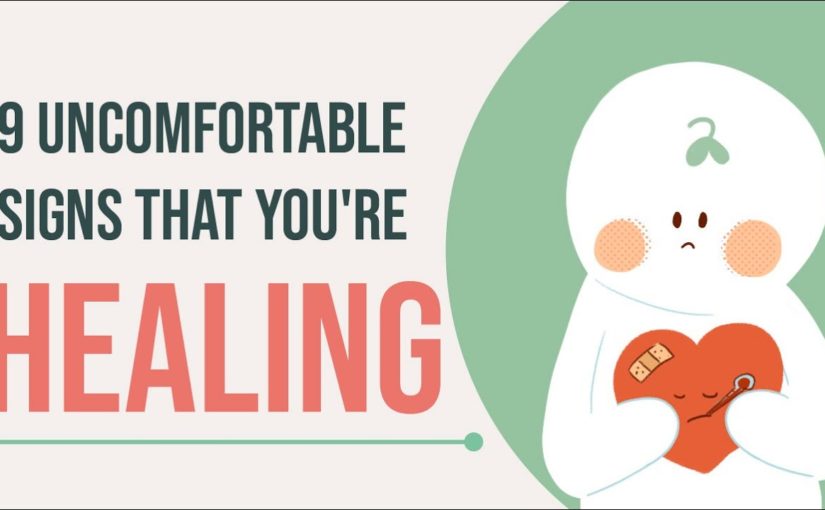
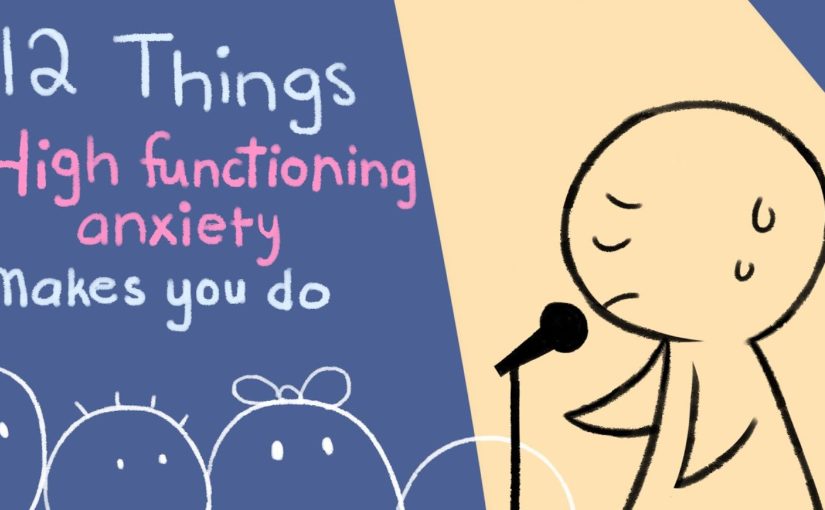
 So getting over it feels difficult Eight you constantly compare yourself to others It’s normal to occasionally compare yourself to others but those with high-functioning anxiety. Take it to an extreme Are you overly concerned with how you measure up against your peers? Do you constantly worry that you’re not fulfilling your full potential? No matter how much you accomplish. Do you never feel like it’s enough? If so, you might be struggling with high-functioning anxiety 9 You’re a constant people pleaser Do you work hard to make others feel happy, even if it comes at the cost of your well-being Do you feel like you’ll never be good enough until you attain it? Everyone’s approval If you have high-functioning anxiety you may have convinced yourself that the only way others will ever accept you is if you go above and beyond what everyone expects of You all the time. 10 You need to keep yourself busy all the time Now we’re not talking about creating great Renaissance artworks or intricate business plans We just mean busy not necessarily productive If you’re not busy you feel Restless and tense. So you try to occupy yourself with just about anything during your nails. Yes Alphabetizing your games. Okay, cleaning your perfectly working computer fan with a toothbrush It’s sure the truth is you don’t mind doing anything as long as it helps distract yourself from your thoughts and worries 11 You get very anxious whenever you think about the future What does the future mean to you for many in the future is the light of possibility something to eagerly look forward to? then for some, it can feel like Scrooge and that last spirit of Christmas who looked like the Grim Reaper if You’re not feeling hope but terror and dread for what’s to come This could be a sign of high-functioning anxiety can paralyze you with fear about the unknown and what’s not in your control it can keep you from truly living your life to the fullest because you always expect the worst to happen and 12 you always focus on the worst-case scenario Do you like to prep my prep? We mean do you say to yourself? Okay, so this is the worst possible outcome I’ll be ready for it. If I’m ready for it. I can handle anything else. Do you then continue to expect the worst-case scenario? They might be high-functioning anxiety laying the plans This might lead people to misjudge you as a pessimist because ultimately you may try to share with them your preparations Where you see anticipating and being proactive they see a downer Unfortunately being so prepared often doesn’t allow you to just enjoy the moment Do you relate to any of the things listed here living with high-functioning anxiety is never easy? But most people may not see the emotional toll it can have on a person if you’re starting to feel overwhelmed with your anxiety There are many professional certified resources to reach out to Please like share and subscribe to the site to go for more psychology content.
So getting over it feels difficult Eight you constantly compare yourself to others It’s normal to occasionally compare yourself to others but those with high-functioning anxiety. Take it to an extreme Are you overly concerned with how you measure up against your peers? Do you constantly worry that you’re not fulfilling your full potential? No matter how much you accomplish. Do you never feel like it’s enough? If so, you might be struggling with high-functioning anxiety 9 You’re a constant people pleaser Do you work hard to make others feel happy, even if it comes at the cost of your well-being Do you feel like you’ll never be good enough until you attain it? Everyone’s approval If you have high-functioning anxiety you may have convinced yourself that the only way others will ever accept you is if you go above and beyond what everyone expects of You all the time. 10 You need to keep yourself busy all the time Now we’re not talking about creating great Renaissance artworks or intricate business plans We just mean busy not necessarily productive If you’re not busy you feel Restless and tense. So you try to occupy yourself with just about anything during your nails. Yes Alphabetizing your games. Okay, cleaning your perfectly working computer fan with a toothbrush It’s sure the truth is you don’t mind doing anything as long as it helps distract yourself from your thoughts and worries 11 You get very anxious whenever you think about the future What does the future mean to you for many in the future is the light of possibility something to eagerly look forward to? then for some, it can feel like Scrooge and that last spirit of Christmas who looked like the Grim Reaper if You’re not feeling hope but terror and dread for what’s to come This could be a sign of high-functioning anxiety can paralyze you with fear about the unknown and what’s not in your control it can keep you from truly living your life to the fullest because you always expect the worst to happen and 12 you always focus on the worst-case scenario Do you like to prep my prep? We mean do you say to yourself? Okay, so this is the worst possible outcome I’ll be ready for it. If I’m ready for it. I can handle anything else. Do you then continue to expect the worst-case scenario? They might be high-functioning anxiety laying the plans This might lead people to misjudge you as a pessimist because ultimately you may try to share with them your preparations Where you see anticipating and being proactive they see a downer Unfortunately being so prepared often doesn’t allow you to just enjoy the moment Do you relate to any of the things listed here living with high-functioning anxiety is never easy? But most people may not see the emotional toll it can have on a person if you’re starting to feel overwhelmed with your anxiety There are many professional certified resources to reach out to Please like share and subscribe to the site to go for more psychology content.
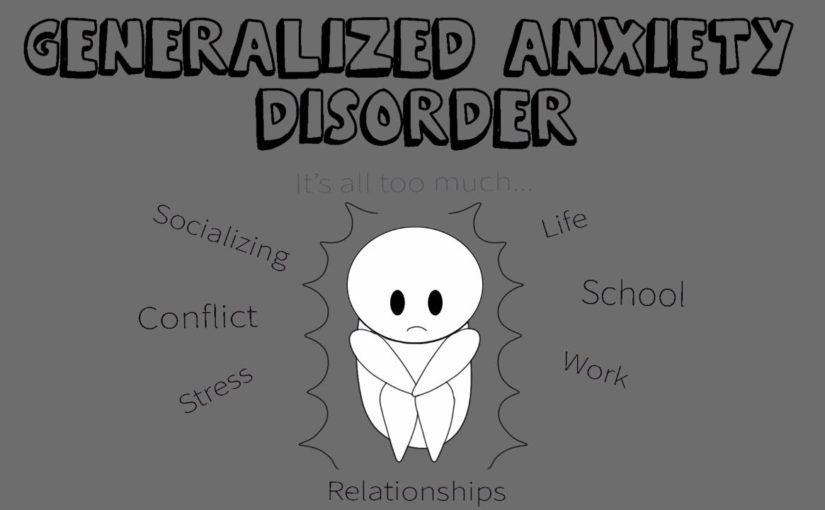


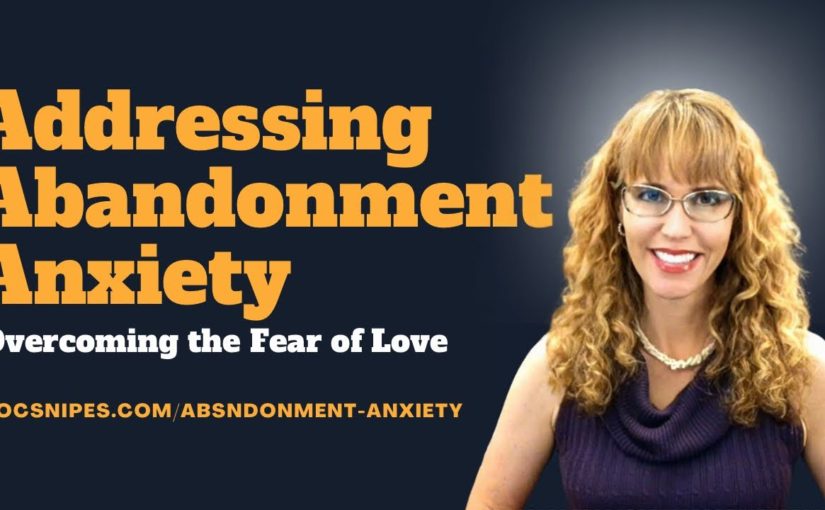





























 Since lavender oil has no potential
for drug abuse and causes no hangover effects, it appears to be an effective
and well-tolerated alternative to benzodiazepine drugs for the amelioration
of generalized anxiety. One cautionary note, however. There was a case series published
in the New England Journal of Medicine. Prepuberty gynecomastia
linked to lavender. Reports of young boys exposed
to lavender-containing lotions, soaps, hair gel, and shampoo,
starting to develop breasts, which disappeared after these
products were discontinued, suggesting that lavender oil
may possess hormone-disrupting activity. Indeed, when dripped on estrogen receptor
positive human breast cancer cells, lavender does show estrogenic effects
and a decline in male hormone activity, though it’s unknown if similar reactions
occur inside the body when lavender flowers
or lavender oil is ingested.
Since lavender oil has no potential
for drug abuse and causes no hangover effects, it appears to be an effective
and well-tolerated alternative to benzodiazepine drugs for the amelioration
of generalized anxiety. One cautionary note, however. There was a case series published
in the New England Journal of Medicine. Prepuberty gynecomastia
linked to lavender. Reports of young boys exposed
to lavender-containing lotions, soaps, hair gel, and shampoo,
starting to develop breasts, which disappeared after these
products were discontinued, suggesting that lavender oil
may possess hormone-disrupting activity. Indeed, when dripped on estrogen receptor
positive human breast cancer cells, lavender does show estrogenic effects
and a decline in male hormone activity, though it’s unknown if similar reactions
occur inside the body when lavender flowers
or lavender oil is ingested.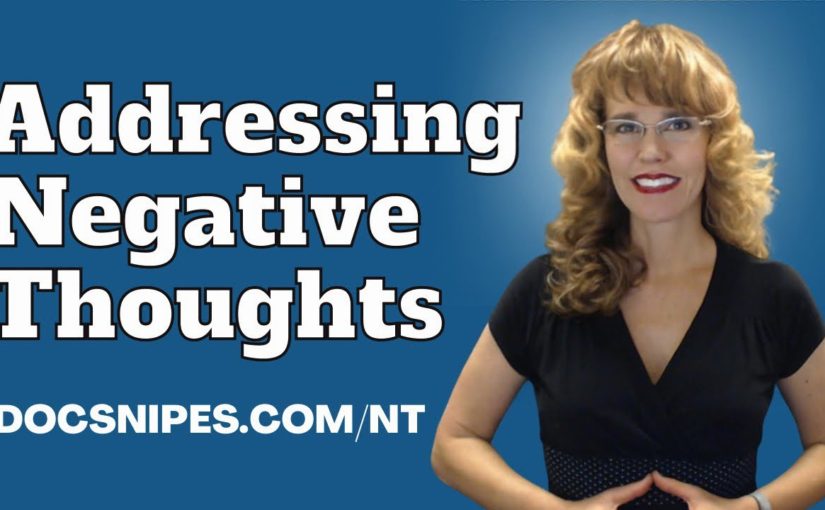
 Schneider by subscribing at all CEUs
calm / counselor toolbox this episode has been brought to you in part by all
CEUs calm providing 24/7 multimedia continuing education and pre
certification training to counselors therapists and nurses since 2006 use
coupon code consular toolbox to get a 20% discount off your order this month.
Schneider by subscribing at all CEUs
calm / counselor toolbox this episode has been brought to you in part by all
CEUs calm providing 24/7 multimedia continuing education and pre
certification training to counselors therapists and nurses since 2006 use
coupon code consular toolbox to get a 20% discount off your order this month.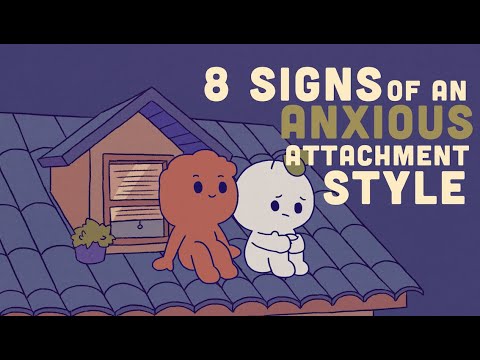
 Instead of seeing criticism
as a way to help you grow, you may take it as a rejection, and let it amplify your
fears and insecurities, which may ultimately
lead to low self-esteem. Number seven is ambivalence
towards intimacy. Do you crave intimacy, or
do you find it overwhelming? Some people with anxious
attachments walk this fine line between craving and fearing
emotional and physical intimacy. And this perception of intimacy may be due to emotional neglect
during your childhood. So while you have a deep
craving for intimacy, you may not know how to, or be comfortable with accepting it. And number eight, feeling unworthy. Do you feel unworthy of love, or that you aren’t good
enough for your relationships? People with an anxious attachment may have low levels of self-esteem, and a negatively distorted
view of their self-worth. This lack of self-esteem is
likely to stem from insecurities and fears of being abandoned, or unwanted by your parents or loved ones, which may lead to a belief
that you’re not worthy enough for your relationships. We hope you enjoyed learning
about some of the signs of an anxious attachment style. Do you relate to any of the
things we’ve mentioned above? Let us know in the comments below. If you found this video helpful, be sure to like and share this video with those who might benefit from it. Don’t forget to subscribe and
hit the notification bell icon to get notified whenever I
decide to go post a new video. The references and
studies used in this video are added in the description below. Thanks for watching, and we’ll
see you in our next video.
Instead of seeing criticism
as a way to help you grow, you may take it as a rejection, and let it amplify your
fears and insecurities, which may ultimately
lead to low self-esteem. Number seven is ambivalence
towards intimacy. Do you crave intimacy, or
do you find it overwhelming? Some people with anxious
attachments walk this fine line between craving and fearing
emotional and physical intimacy. And this perception of intimacy may be due to emotional neglect
during your childhood. So while you have a deep
craving for intimacy, you may not know how to, or be comfortable with accepting it. And number eight, feeling unworthy. Do you feel unworthy of love, or that you aren’t good
enough for your relationships? People with an anxious attachment may have low levels of self-esteem, and a negatively distorted
view of their self-worth. This lack of self-esteem is
likely to stem from insecurities and fears of being abandoned, or unwanted by your parents or loved ones, which may lead to a belief
that you’re not worthy enough for your relationships. We hope you enjoyed learning
about some of the signs of an anxious attachment style. Do you relate to any of the
things we’ve mentioned above? Let us know in the comments below. If you found this video helpful, be sure to like and share this video with those who might benefit from it. Don’t forget to subscribe and
hit the notification bell icon to get notified whenever I
decide to go post a new video. The references and
studies used in this video are added in the description below. Thanks for watching, and we’ll
see you in our next video.
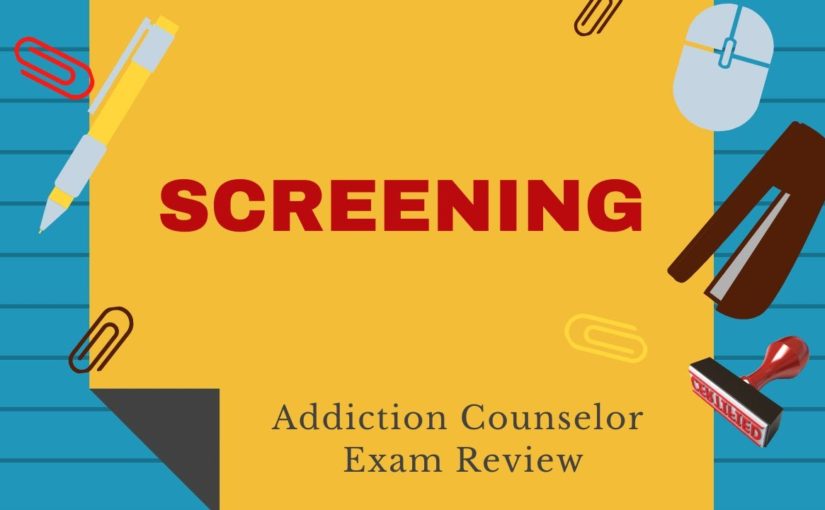
 So you know focus on what the person has to say and what their heart has to say to engage, and you know likewise, you may not be written off the pages of Vogue either, but try to present yourself well, try to you know, dress appropriately Don’t show up all disheveled and smelly clothes like looking like you haven’t bathed in a week that that’s not helpful so make sure that you’re presenting your best face and you’re dealing with whatever face the client brings And still trying to build that engagement remember the way a client presents. This tells us a lot about what’s contributing to their presenting issues: poor social skills, and ADHD pain. You know there are a variety of things that can contribute to depression, anxiety, and substance use. So try to look at it from that way, even if it’s not your ideal client understand what’s causing this person to be negative and just argumentative and frustrating try to get under there and figure it out. Why is this person so unhappy? What’s motivating is that first impressions impact engagement, so your professional presentation is promptly courteous and smooth handling paperwork. If you walk in there with 15 sheets of paper – and you’re shuffling them around and it seems like you, don’t know what you’re doing. You’re like just a second. I know I had that form around here somewhere, they’re not going to feel very confident in anything. You have to say so and put on a good first impression. Put it together and make sure your paperwork is put together ahead of time. If you have an electronic medical record, make sure you know how to use it because it’s disturbing to people, even though it happens when you’re, using an electronic medical health record to do a screening and you get stuck and you’ve got To call somebody else in to help you figure out how to get on the next screen make sure the environment is calm, clean and comfortable, not too formal or informal like we talked about it, avoids interruptions and provides the appropriate level of privacy. You don’t want clients sitting in the waiting room being able to hear other clients that are in the therapy, rooms or screening rooms. If you’re doing screenings, you may not even be in an office, you may be out at a festival or something so make sure that you’ve got. You know little pull-around screens or something, if appropriate, to give people privacy other people, shouldn’t be hearing their responses to what you are asking them, even if it’s, you know like I said, even if it’s at a Workplace festival or something other people should not hear their answers. So how can you give them privacy if there’s, no way to do that where they can have auditory privacy put as much as possible on check sheets and forms that they can fill out? And then you can point to something and go so help me understand your answer to this right here. Most of the time you want to try to do a screening in a private room. In the initial interview you’re, developing trust and rapport so be empathetic. They’re nervous, probably or they don’t want to be there or maybe they do want to be there and they’re, just hoping that you can help paraphrase that to them whatever vibe you’re getting off of them, paraphrase that and work With it convey warmth and respect and explores the clients, strengths, and skills, you know you’ve been dealing with this depression or this addiction for a long time. I’m wondering how you’ve survived until now. What has helped you deal with it? And keep on keeping on facilitating the clients, understanding the rationale, purpose, and procedures of the screening and assessment exploring the clients, problems, and expectations regarding treatment and recovery, and determining whether a further assessment is needed. That’s your screening. So the definition of screening is the process by which the counselor, client, and significant others, when possible, review the current situation, symptoms, and collateral information to determine the probability of a problem. So we’re going to sit down and we’re going to go okay. What brings you here today? What makes you think you got a problem, you know, and then we’re going to start asking questions or using instruments to try to determine whether we think that there’s a probability that that problem exists screaming is used by all types of Human Service Personnel to determine eligibility and appropriateness of services and needed referrals, so it may be used by a physician by a nurse by a counselor by a caseworker to determine how can we best help this person achieve their goals and their maximum quality of life? It’s not unusual for caseworkers at the Department of Children and Families. If people are coming in to get their food stamps or EBT that month, or they’re enrolling in the process to do a screening to determine how can we best help this person? You know be able to start earning more money, you know, maybe they just need a better job, or maybe they’re not able to maintain employment because their depression is so oppressive. So you can see where screening may be used in a lot of different systems and situations to help people figure out how to help their customers. Screening determines the immediacy of the need. You know you could be doing a screening with somebody who’s like on the fence, or they don’t think they’ve got a problem and it you know there or their problem is minor, so the immediacy may not be great or you could Be screening somebody who is you know heavily intoxicated was just kicked out of his house is facing three DUIs. You know they have a much more immediate need for their safety as well as, hopefully, they’re. More motivated screening needs to be a trance process. We don’t want to sit there with a clipboard and be asking questions and scribbling things down and going uh huh. Well, I think you need to go for an assessment that’s not transparent. The clients like, where did you come up with that I usually use screening instruments, and I talk with people when I’m writing things down. I tell them at the end. If you want to see anything I wrote down, I would encourage you to know I don’t write well, and I’ve got poor penmanship, but I encourage you to read what I wrote and we’re going to talk about these instruments after you Take them so you know you know why were we asking these particular questions? What does it mean to me as a therapist doing your screening, so they understand how you’re arriving at your conclusions? Screening does require informed consent. You know it. Doesn’t have to be a big thing, but it does have to happen before you start screening somebody you need to go. You know I’d like to screen you for depression or anxiety, or this is a wellness screening that your agency is offered, but have them ideally have them sign a sheet acknowledging that they know that they’re being screened for whatever and screening identifies Early warning signs and helps provide early intervention, services and resources, so you know think about high blood pressure or diabetes or any of those physical things doctor screens for that regularly, and if they see that there might be a problem creeping in, they can do something right. Then, to keep it from becoming a full-blown problem. Mental health screening is the same. We notice people are under a lot of stress. We know that that’s probably going to wear them out after a while, and it might lead to depression. So we can start helping them, develop stress management skills, for example. They may not need to go to treatment, maybe they need to go to psychoeducation and learn about stress management, or maybe you’ve got a book. You can let them read or something. But screening is a method of determining what the person needs. Screening is the first opportunity to engage the client in the therapeutic relationship and treatment process, sometimes based on observations or other circumstances. People may be referred directly for assessment, for example, if people come into the detoxification unit we kind of bypass screening. We know there’s a problem and jump straight into assessment, so screening doesn’t always happen, but a lot of times. It does because of that referral source – you know if you’re an Assessor that person came from somewhere. You know their lawyer could have screened them. Their doctor could have screened them whatever, but somebody along the way, probably screen them to determine yeah. You probably need to go over to this facility and talk to an Assessor of the clients. Internal motivation is the primary reason for engaging in treatment. So if they’re there because their wife told them they had to be or their boss or the courts that got them there, but to get them actually engaged in treatment and not just going through the motions they have to have internal motivation. There has to be something in it for them, and that’s, what we want to work on developing throughout the whole process, help them see how this benefits them, what’s in it for them, how can it help them accomplish and get closer to their goals for their life, internal motivation may be fleeting, so rapid engagement is vital. If you see a spark of interest or a spark of willingness, we kind of need to pounce on that spark and go alright. It seems like you know you want to get on with this because you’re sick and tired of being sick and tired. So let’s get you enrolled. Now, if you have to make an appointment for an assessment that’s six weeks out, you may lose the person. You know that engagement doesn’t last for long. The engagement lasts while they’re in your office, and then you know you got to have somebody else, pick it up and keep that momentum going. Screening should be brief. You know twenty-thirty minutes you don’t want to have somebody in there for three hours, that’s the assessment conducted in a variety of settings by a range of professionals on persons deemed to be at risk. Some things we do Universal screenings for like domestic violence, other things you may do selected screenings for – and it also depends on your setting and all that kind of thing. But the take-home point is that screenings are conducted in a variety of settings, whether it be a Health Fair at an employer,’s, a doctor,’s office, sometimes churches will even set up wellness days and do screenings screening represents the first part of a Collaboration among the multidisciplinary team because the screener is going to say, okay, I think I’ve identified that this person probably has an issue with this and needs to be referred to assessment over here, but they also need help with housing and food and affording their Prescriptions, so the screener will kind of link them to other team members in the multidisciplinary team. Screening needs to be sensitive to racial, cultural, socio, economic, and gender-related concerns, so make sure that you’re, culturally responsive and it needs to be developed from information gathered from multiple sources when possible. When you’re doing a screening a lot of times, the only person you’ve got to do. The screening is the person sitting right in front of you, but if you’ve got other information. When I do screenings on people in the criminal justice system, I want to see their criminal records. You know that gives me some objective. Information on you know how many times have they been caught? Dui, whether or not they’ve been convicted? How many times have they been caught DUI, that gives me a little bit more information than just what that person is telling me if they’ve been involved with the Department of Children and Families. I want them to bring their case report, especially if they’ve got an open case going on. Screening assesses signs and symptoms of intoxication and withdrawal. Three key elements: we want to verify that the behavior deviates from the norm and rule out all non-drug related causes. So if somebody is having difficulty focusing or they’re agitated, we want to rule out ADHD and schizophrenia and some other things that might cause that, to rule in, if you will stimulant abuse, for example, you want to verify that there. This is not how they normally behave. You know some people are agitated and a little bit more bouncy or fidgety or whatever you want to say most of the time. If that’s how they are, then you know that’s how they are and it’s not a drug, wants to rule out the drug-related causes, including physical causes. You know if they’re in chronic pain if you know etc. There are a lot of reasons somebody could be excessively sleepy have difficulty concentrating be overly agitated. There are a lot of things that use diagnostic procedures to determine the types of drugs being used. So in screening, we’re going to ask them what they’ve been using. But ideally, you can also do an on-site drug screening. You know having a pee in a cup and the on-site. Screenings are not super reliable, but it gives you something to look at. You know most cases, it’s anywhere between 60 and 70 percent reliability, which is why, if it comes up positive and the person says, I didn’t use that it needs to be sent off to a lab for mass spectrometry. To determine what happened, because you can get false positives and you can get false negatives, they may have used something and it doesn’t show up on the test. So you don’t want to just trust the on sites as being a hundred percent, but it is a good tool to identify whether the person is telling you the truth about how much or what their current, whether they’re currently using or not assess Clients, mental health and trauma history. You’re not going to get deep into the weeds here, just ask them if they have a history of depression, anxiety, or abuse of any sort and move on to their safety or environmental needs. Do they have a safe place to sleep? You know if they have an address, you know, do they feel safe in their home? Do they eat well, how’s their nutrition? Do they have any physical health needs that are not getting met? Do they have any other wraparound needs? If they’ve got kids, do they have access to childcare? Are they having problems with transportation? Are they able to afford the medications that they’re already prescribed, etc? So we want to ask them about some basic things like that, and then we’re going to assess the danger to themselves and others. Are they talking about harming themselves or someone else? And we also want to ask if they’re thinking about hurting themselves or someone else. Screening methods include interviewing the clients and significant others using screening instruments and lab tests like urinalysis that we talked about signs of substance, use disorders or mental health issues. We want to look for number one, the circumstances of contact. If the person was referred by the court, then that’s a pretty good sign that there may be a substance use disorder going on if they’re referred because of a DUI. For example, if they’re referred because of a fight they got into, but they weren’t using at the time their blood alcohol was zero. We want to look maybe for mental health issues and things like intermittent explosive disorder. You want to look at the clients, demeanor, and behavior. Are they acting like they’re under the influence when they come in for the screening? Are they showing signs of acute intoxication or withdrawal? Are there any physical signs of drug use or self-injury? Needle injection marks, if they have a get frequent bloody noses, you know if they get bloody noses, while they’re in your office or if they have signs that they’ve been picking. Those can be all physical signs of drug use. Emaciation and malnutrition are also signed some drugs will cause the pupils to be dilated. Other drugs will cause the pupils to be pinpointed. So you want to know what the signs of different drugs are for drugs of intoxication and different signs that people have been using, especially injection, but, like I said, sometimes, drugs will cause people to pick or itch, and that will show indicate to you that there might Be an underlying issue and information spontaneously offered by the client or significant others can give you information about whether there’s a substance, use or mental health issue, and sometimes the significant other. Let me just kind of back up: there may be the significance the spouse brought the person in and when you go out to meet them you, the person, the person being interviewed. Doesn’t want their spouse in there. They want. They want to go back by themselves, okay, that’s cool, you go out and meet the person and then, if you can, with permission, bring the spouse back after the screening to give them both the results, and at that point the significant other the spouse may Spontaneously say: oh well, why didn’t you tell them about? You know the DUI you had three years ago or whatever. So sometimes spouses will just kind of blurt things out because they suspect that the significant other didn’t already say it during the interview. So if you can get that person in a private place where they have an opportunity to say something wonderful but remember you know you do have to have the client’s permission. Screening instruments can be developed by the agency or use standardized instruments. The cage is a common one and you ask a person: have they tried to cut down unsuccessfully, do they feel annoyed when people talk to them about their substance use, do they feel guilty about the substances about using their substances and do they sometimes have to Use first thing: in the morning to kind of wake up we call it an eye opener if they say yes to one or more of those, there’s a chance that they may have a problem. The gain is another tool that you can use, as is the Michigan alcohol screening test or the Sasi. So all of those are standardized instruments, and some of them cost money. Others, like Kay, don’t, so it may depend on your agency and what kind of budget you’ve got. What instruments you’re using any instruments you do use must detail what action should be taken based on received scores. So if a person takes the cage – and they say yes to one but not any of the others, does that mean they should be sent for a referral if they say yes to two, when at what point should they be sent for a full assessment? You want to screen when screening for mental health you want to screen for acute symptoms such as hallucinations, delusions or depression or anxiety, suicidal thoughts and behaviors, and other mood and thought disturbances. So you’re going to ask them about time, place, purpose, and person. Do you know what time it is? Do you know where you are? Do you know why you’re here and do you know who I am you’re going to ask them about short and long-term memory if they can tell you about something from their childhood great, but you’re also going to ask them If they can tell you about what they had for lunch, another thing you want to assess or another way to assess short term memory is to tell them. I’m going to tell you four words and I want I’m going to. Ask you in a few minutes to recall those four words for me and then tell them four words: make them easy words like dog cat, bird, and fish. You know not something hard to remember and then in five or ten minutes. Ask them what were the four words I told you and see if they can remember you’re going to ask them about prior involvement in mental health treatment. What worked and what didn’t if they have been in treatment? What prescription medications do they use, and this includes all prescriptions because physical health prescriptions can have mental health side effects? Ask them about recent traumas again, don’t get into it, but ask them if they’ve been victimized or experienced any sort of abuse and a family history of mental illness. If they have a family history of mental illness, the chances of them developing mental illness are a little bit greater. When screening for mental health, you’re going to use the modified mini screen, the Mental Status exam, the mini Mental Status exam. The brief symptom inventory, a brief psychiatric rating scale, or the symptom checklist 9 t r. So those are the ones that you’re, typically going to use a lot of times. They’re already in your electronic medical record, so you’re not going to have to figure out what to use in terms of you know, knowing what the instruments are for certification and testing purposes. These are the six that you want to be aware of. So you can google each one of them and find out more about what each screening test can provide. Your screening is the initial contact to decide if a person may need a more in-depth assessment. Screening is brief but requires the person to be engaged in the process to get an accurate result. How well the person is engaged in the screening process is a direct predictor of whether he or she will continue in the process. If you enjoy this podcast, please like and subscribe either in your podcast player or on YouTube, you can attend and participate in our live webinars with doctor Snipes by subscribing at all CEUs comm slash counselor toolbox. This episode has been brought to you in part by all CEUs com providing 24 7 multimedia, continuing education, and pre-certification; training to counselors therapists, and nurses, since 2006 use coupon code consular toolbox to get a 20 discount off your order. This month,
So you know focus on what the person has to say and what their heart has to say to engage, and you know likewise, you may not be written off the pages of Vogue either, but try to present yourself well, try to you know, dress appropriately Don’t show up all disheveled and smelly clothes like looking like you haven’t bathed in a week that that’s not helpful so make sure that you’re presenting your best face and you’re dealing with whatever face the client brings And still trying to build that engagement remember the way a client presents. This tells us a lot about what’s contributing to their presenting issues: poor social skills, and ADHD pain. You know there are a variety of things that can contribute to depression, anxiety, and substance use. So try to look at it from that way, even if it’s not your ideal client understand what’s causing this person to be negative and just argumentative and frustrating try to get under there and figure it out. Why is this person so unhappy? What’s motivating is that first impressions impact engagement, so your professional presentation is promptly courteous and smooth handling paperwork. If you walk in there with 15 sheets of paper – and you’re shuffling them around and it seems like you, don’t know what you’re doing. You’re like just a second. I know I had that form around here somewhere, they’re not going to feel very confident in anything. You have to say so and put on a good first impression. Put it together and make sure your paperwork is put together ahead of time. If you have an electronic medical record, make sure you know how to use it because it’s disturbing to people, even though it happens when you’re, using an electronic medical health record to do a screening and you get stuck and you’ve got To call somebody else in to help you figure out how to get on the next screen make sure the environment is calm, clean and comfortable, not too formal or informal like we talked about it, avoids interruptions and provides the appropriate level of privacy. You don’t want clients sitting in the waiting room being able to hear other clients that are in the therapy, rooms or screening rooms. If you’re doing screenings, you may not even be in an office, you may be out at a festival or something so make sure that you’ve got. You know little pull-around screens or something, if appropriate, to give people privacy other people, shouldn’t be hearing their responses to what you are asking them, even if it’s, you know like I said, even if it’s at a Workplace festival or something other people should not hear their answers. So how can you give them privacy if there’s, no way to do that where they can have auditory privacy put as much as possible on check sheets and forms that they can fill out? And then you can point to something and go so help me understand your answer to this right here. Most of the time you want to try to do a screening in a private room. In the initial interview you’re, developing trust and rapport so be empathetic. They’re nervous, probably or they don’t want to be there or maybe they do want to be there and they’re, just hoping that you can help paraphrase that to them whatever vibe you’re getting off of them, paraphrase that and work With it convey warmth and respect and explores the clients, strengths, and skills, you know you’ve been dealing with this depression or this addiction for a long time. I’m wondering how you’ve survived until now. What has helped you deal with it? And keep on keeping on facilitating the clients, understanding the rationale, purpose, and procedures of the screening and assessment exploring the clients, problems, and expectations regarding treatment and recovery, and determining whether a further assessment is needed. That’s your screening. So the definition of screening is the process by which the counselor, client, and significant others, when possible, review the current situation, symptoms, and collateral information to determine the probability of a problem. So we’re going to sit down and we’re going to go okay. What brings you here today? What makes you think you got a problem, you know, and then we’re going to start asking questions or using instruments to try to determine whether we think that there’s a probability that that problem exists screaming is used by all types of Human Service Personnel to determine eligibility and appropriateness of services and needed referrals, so it may be used by a physician by a nurse by a counselor by a caseworker to determine how can we best help this person achieve their goals and their maximum quality of life? It’s not unusual for caseworkers at the Department of Children and Families. If people are coming in to get their food stamps or EBT that month, or they’re enrolling in the process to do a screening to determine how can we best help this person? You know be able to start earning more money, you know, maybe they just need a better job, or maybe they’re not able to maintain employment because their depression is so oppressive. So you can see where screening may be used in a lot of different systems and situations to help people figure out how to help their customers. Screening determines the immediacy of the need. You know you could be doing a screening with somebody who’s like on the fence, or they don’t think they’ve got a problem and it you know there or their problem is minor, so the immediacy may not be great or you could Be screening somebody who is you know heavily intoxicated was just kicked out of his house is facing three DUIs. You know they have a much more immediate need for their safety as well as, hopefully, they’re. More motivated screening needs to be a trance process. We don’t want to sit there with a clipboard and be asking questions and scribbling things down and going uh huh. Well, I think you need to go for an assessment that’s not transparent. The clients like, where did you come up with that I usually use screening instruments, and I talk with people when I’m writing things down. I tell them at the end. If you want to see anything I wrote down, I would encourage you to know I don’t write well, and I’ve got poor penmanship, but I encourage you to read what I wrote and we’re going to talk about these instruments after you Take them so you know you know why were we asking these particular questions? What does it mean to me as a therapist doing your screening, so they understand how you’re arriving at your conclusions? Screening does require informed consent. You know it. Doesn’t have to be a big thing, but it does have to happen before you start screening somebody you need to go. You know I’d like to screen you for depression or anxiety, or this is a wellness screening that your agency is offered, but have them ideally have them sign a sheet acknowledging that they know that they’re being screened for whatever and screening identifies Early warning signs and helps provide early intervention, services and resources, so you know think about high blood pressure or diabetes or any of those physical things doctor screens for that regularly, and if they see that there might be a problem creeping in, they can do something right. Then, to keep it from becoming a full-blown problem. Mental health screening is the same. We notice people are under a lot of stress. We know that that’s probably going to wear them out after a while, and it might lead to depression. So we can start helping them, develop stress management skills, for example. They may not need to go to treatment, maybe they need to go to psychoeducation and learn about stress management, or maybe you’ve got a book. You can let them read or something. But screening is a method of determining what the person needs. Screening is the first opportunity to engage the client in the therapeutic relationship and treatment process, sometimes based on observations or other circumstances. People may be referred directly for assessment, for example, if people come into the detoxification unit we kind of bypass screening. We know there’s a problem and jump straight into assessment, so screening doesn’t always happen, but a lot of times. It does because of that referral source – you know if you’re an Assessor that person came from somewhere. You know their lawyer could have screened them. Their doctor could have screened them whatever, but somebody along the way, probably screen them to determine yeah. You probably need to go over to this facility and talk to an Assessor of the clients. Internal motivation is the primary reason for engaging in treatment. So if they’re there because their wife told them they had to be or their boss or the courts that got them there, but to get them actually engaged in treatment and not just going through the motions they have to have internal motivation. There has to be something in it for them, and that’s, what we want to work on developing throughout the whole process, help them see how this benefits them, what’s in it for them, how can it help them accomplish and get closer to their goals for their life, internal motivation may be fleeting, so rapid engagement is vital. If you see a spark of interest or a spark of willingness, we kind of need to pounce on that spark and go alright. It seems like you know you want to get on with this because you’re sick and tired of being sick and tired. So let’s get you enrolled. Now, if you have to make an appointment for an assessment that’s six weeks out, you may lose the person. You know that engagement doesn’t last for long. The engagement lasts while they’re in your office, and then you know you got to have somebody else, pick it up and keep that momentum going. Screening should be brief. You know twenty-thirty minutes you don’t want to have somebody in there for three hours, that’s the assessment conducted in a variety of settings by a range of professionals on persons deemed to be at risk. Some things we do Universal screenings for like domestic violence, other things you may do selected screenings for – and it also depends on your setting and all that kind of thing. But the take-home point is that screenings are conducted in a variety of settings, whether it be a Health Fair at an employer,’s, a doctor,’s office, sometimes churches will even set up wellness days and do screenings screening represents the first part of a Collaboration among the multidisciplinary team because the screener is going to say, okay, I think I’ve identified that this person probably has an issue with this and needs to be referred to assessment over here, but they also need help with housing and food and affording their Prescriptions, so the screener will kind of link them to other team members in the multidisciplinary team. Screening needs to be sensitive to racial, cultural, socio, economic, and gender-related concerns, so make sure that you’re, culturally responsive and it needs to be developed from information gathered from multiple sources when possible. When you’re doing a screening a lot of times, the only person you’ve got to do. The screening is the person sitting right in front of you, but if you’ve got other information. When I do screenings on people in the criminal justice system, I want to see their criminal records. You know that gives me some objective. Information on you know how many times have they been caught? Dui, whether or not they’ve been convicted? How many times have they been caught DUI, that gives me a little bit more information than just what that person is telling me if they’ve been involved with the Department of Children and Families. I want them to bring their case report, especially if they’ve got an open case going on. Screening assesses signs and symptoms of intoxication and withdrawal. Three key elements: we want to verify that the behavior deviates from the norm and rule out all non-drug related causes. So if somebody is having difficulty focusing or they’re agitated, we want to rule out ADHD and schizophrenia and some other things that might cause that, to rule in, if you will stimulant abuse, for example, you want to verify that there. This is not how they normally behave. You know some people are agitated and a little bit more bouncy or fidgety or whatever you want to say most of the time. If that’s how they are, then you know that’s how they are and it’s not a drug, wants to rule out the drug-related causes, including physical causes. You know if they’re in chronic pain if you know etc. There are a lot of reasons somebody could be excessively sleepy have difficulty concentrating be overly agitated. There are a lot of things that use diagnostic procedures to determine the types of drugs being used. So in screening, we’re going to ask them what they’ve been using. But ideally, you can also do an on-site drug screening. You know having a pee in a cup and the on-site. Screenings are not super reliable, but it gives you something to look at. You know most cases, it’s anywhere between 60 and 70 percent reliability, which is why, if it comes up positive and the person says, I didn’t use that it needs to be sent off to a lab for mass spectrometry. To determine what happened, because you can get false positives and you can get false negatives, they may have used something and it doesn’t show up on the test. So you don’t want to just trust the on sites as being a hundred percent, but it is a good tool to identify whether the person is telling you the truth about how much or what their current, whether they’re currently using or not assess Clients, mental health and trauma history. You’re not going to get deep into the weeds here, just ask them if they have a history of depression, anxiety, or abuse of any sort and move on to their safety or environmental needs. Do they have a safe place to sleep? You know if they have an address, you know, do they feel safe in their home? Do they eat well, how’s their nutrition? Do they have any physical health needs that are not getting met? Do they have any other wraparound needs? If they’ve got kids, do they have access to childcare? Are they having problems with transportation? Are they able to afford the medications that they’re already prescribed, etc? So we want to ask them about some basic things like that, and then we’re going to assess the danger to themselves and others. Are they talking about harming themselves or someone else? And we also want to ask if they’re thinking about hurting themselves or someone else. Screening methods include interviewing the clients and significant others using screening instruments and lab tests like urinalysis that we talked about signs of substance, use disorders or mental health issues. We want to look for number one, the circumstances of contact. If the person was referred by the court, then that’s a pretty good sign that there may be a substance use disorder going on if they’re referred because of a DUI. For example, if they’re referred because of a fight they got into, but they weren’t using at the time their blood alcohol was zero. We want to look maybe for mental health issues and things like intermittent explosive disorder. You want to look at the clients, demeanor, and behavior. Are they acting like they’re under the influence when they come in for the screening? Are they showing signs of acute intoxication or withdrawal? Are there any physical signs of drug use or self-injury? Needle injection marks, if they have a get frequent bloody noses, you know if they get bloody noses, while they’re in your office or if they have signs that they’ve been picking. Those can be all physical signs of drug use. Emaciation and malnutrition are also signed some drugs will cause the pupils to be dilated. Other drugs will cause the pupils to be pinpointed. So you want to know what the signs of different drugs are for drugs of intoxication and different signs that people have been using, especially injection, but, like I said, sometimes, drugs will cause people to pick or itch, and that will show indicate to you that there might Be an underlying issue and information spontaneously offered by the client or significant others can give you information about whether there’s a substance, use or mental health issue, and sometimes the significant other. Let me just kind of back up: there may be the significance the spouse brought the person in and when you go out to meet them you, the person, the person being interviewed. Doesn’t want their spouse in there. They want. They want to go back by themselves, okay, that’s cool, you go out and meet the person and then, if you can, with permission, bring the spouse back after the screening to give them both the results, and at that point the significant other the spouse may Spontaneously say: oh well, why didn’t you tell them about? You know the DUI you had three years ago or whatever. So sometimes spouses will just kind of blurt things out because they suspect that the significant other didn’t already say it during the interview. So if you can get that person in a private place where they have an opportunity to say something wonderful but remember you know you do have to have the client’s permission. Screening instruments can be developed by the agency or use standardized instruments. The cage is a common one and you ask a person: have they tried to cut down unsuccessfully, do they feel annoyed when people talk to them about their substance use, do they feel guilty about the substances about using their substances and do they sometimes have to Use first thing: in the morning to kind of wake up we call it an eye opener if they say yes to one or more of those, there’s a chance that they may have a problem. The gain is another tool that you can use, as is the Michigan alcohol screening test or the Sasi. So all of those are standardized instruments, and some of them cost money. Others, like Kay, don’t, so it may depend on your agency and what kind of budget you’ve got. What instruments you’re using any instruments you do use must detail what action should be taken based on received scores. So if a person takes the cage – and they say yes to one but not any of the others, does that mean they should be sent for a referral if they say yes to two, when at what point should they be sent for a full assessment? You want to screen when screening for mental health you want to screen for acute symptoms such as hallucinations, delusions or depression or anxiety, suicidal thoughts and behaviors, and other mood and thought disturbances. So you’re going to ask them about time, place, purpose, and person. Do you know what time it is? Do you know where you are? Do you know why you’re here and do you know who I am you’re going to ask them about short and long-term memory if they can tell you about something from their childhood great, but you’re also going to ask them If they can tell you about what they had for lunch, another thing you want to assess or another way to assess short term memory is to tell them. I’m going to tell you four words and I want I’m going to. Ask you in a few minutes to recall those four words for me and then tell them four words: make them easy words like dog cat, bird, and fish. You know not something hard to remember and then in five or ten minutes. Ask them what were the four words I told you and see if they can remember you’re going to ask them about prior involvement in mental health treatment. What worked and what didn’t if they have been in treatment? What prescription medications do they use, and this includes all prescriptions because physical health prescriptions can have mental health side effects? Ask them about recent traumas again, don’t get into it, but ask them if they’ve been victimized or experienced any sort of abuse and a family history of mental illness. If they have a family history of mental illness, the chances of them developing mental illness are a little bit greater. When screening for mental health, you’re going to use the modified mini screen, the Mental Status exam, the mini Mental Status exam. The brief symptom inventory, a brief psychiatric rating scale, or the symptom checklist 9 t r. So those are the ones that you’re, typically going to use a lot of times. They’re already in your electronic medical record, so you’re not going to have to figure out what to use in terms of you know, knowing what the instruments are for certification and testing purposes. These are the six that you want to be aware of. So you can google each one of them and find out more about what each screening test can provide. Your screening is the initial contact to decide if a person may need a more in-depth assessment. Screening is brief but requires the person to be engaged in the process to get an accurate result. How well the person is engaged in the screening process is a direct predictor of whether he or she will continue in the process. If you enjoy this podcast, please like and subscribe either in your podcast player or on YouTube, you can attend and participate in our live webinars with doctor Snipes by subscribing at all CEUs comm slash counselor toolbox. This episode has been brought to you in part by all CEUs com providing 24 7 multimedia, continuing education, and pre-certification; training to counselors therapists, and nurses, since 2006 use coupon code consular toolbox to get a 20 discount off your order. This month,